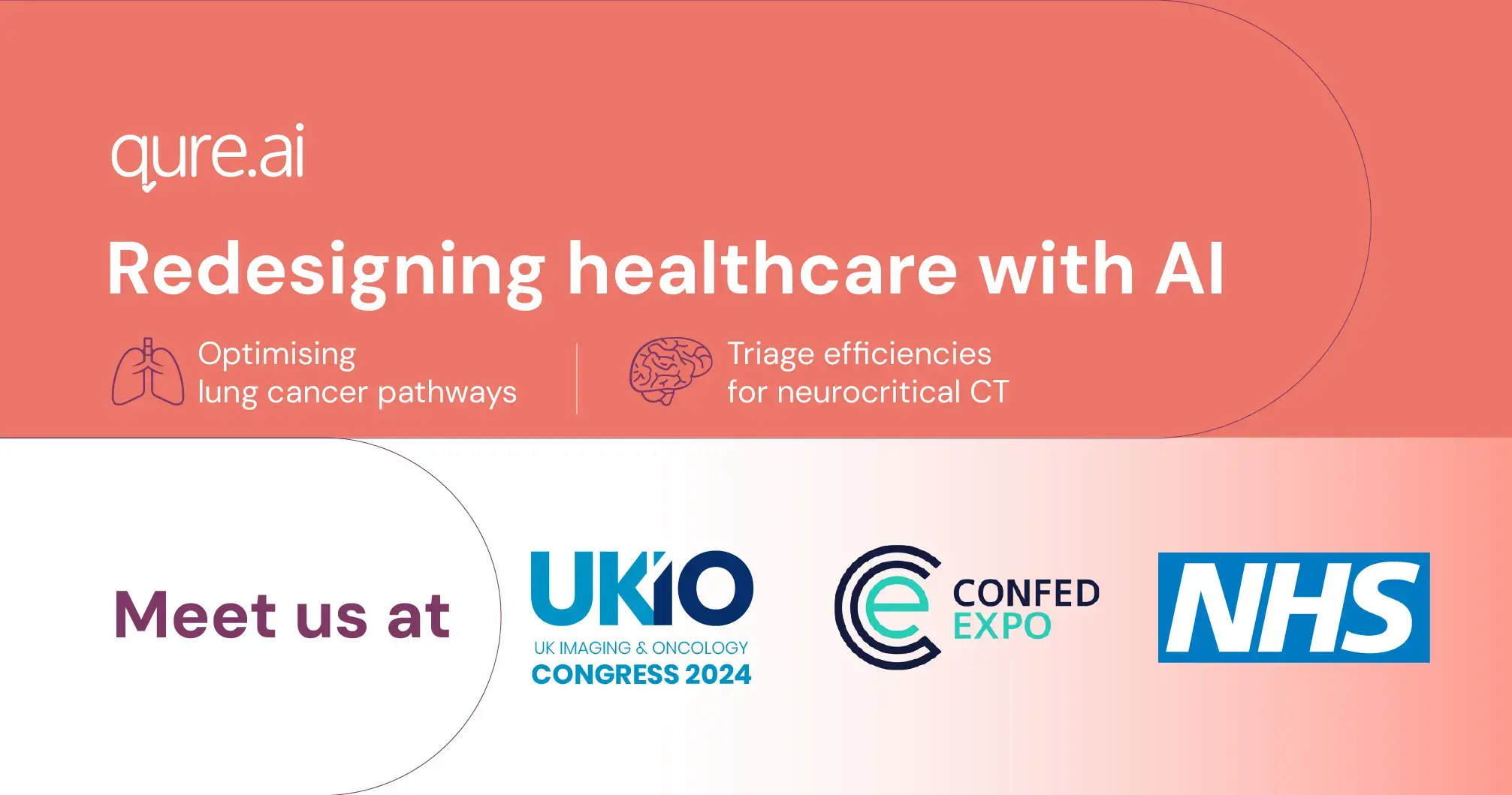AI to optimise lung cancer pathways

Back
A recent roundtable discussion, chaired by Professor Sir Mike Richards, Chair of the UK National Screening Committee brought together experts to discuss the transformation of the lung cancer pathway in the NHS, highlighting the crucial role of AI and other digital health innovations to redesign healthcare. It suggested that new technologies should be seen as an opportunity to streamline existing processes and championed solutions that detect lung nodules from chest X-rays or determine malignancy risk or monitor growth via CT, particularly when used in partnership with Cancer Alliances and NHS Trusts. This approach improves early detection rates and streamlines the diagnostic process, reducing the burden on healthcare professionals.
Many high-profile UK studies are now looking into improving the diagnostic pathway for lung cancer:
- RADICAL, live at NHS Greater Glasgow and Clyde in Scotland is aiming to detect cancer earlier, from GP-referred chest X-rays in an outpatient hospital setting so that the patient pathway to CT scan or treatment planning can be streamlined. This will save time and potentially improve patients' outcomes and quality of life.
- LungIMPACT, a multi-NHS site collaboration study is also using Qure’s qXR AI to triage chest X-rays referred by GPs with the aim of identifying the presence of suspected lung abnormalities and give immediate reporting. This may then enable a patient to be referred for a same-day CT scan if lung cancer is suspected, speeding up access to a confirmed diagnosis and treatment planning.
Furthermore, a pioneering partnership between Qure and AstraZeneca has made considerable progress in the fight against lung cancer on a global scale. This collaboration is testament to the transformative potential of AI, innovating beyond traditional lung cancer screening profiles and improving patient outcomes on a large scale. It's a glimpse into the future of healthcare.
The latest figures suggest 2 million people in 28 countries have been screened using Qure's AI-powered chest X-ray analysis for the incidental detection of high-risk lung nodules. This proactive lung health AI commitment casts the net wider, beyond traditional lung cancer screening based on age or smoking history profiles. The initiative has found over 220,000 lung nodules, identifying close to 3,000 potential early lung cancer cases.
AI to create triage efficiencies for neurocritical CT
AI can also help healthcare professionals make timely decisions and ensure that patients with Traumatic Head Injuries (TBI) or suspected Strokes receive prompt attention. This is particularly important in the context of triage in acute or frontline emergency care where high patient numbers and resource shortages can impact timely patient care.
The ACcEPT (Assess the Clinical Effectiveness in Prioritising CT Heads) study commenced during winter 2023/24 at NHS Greater Glasgow and Clyde, the first of four planned NHS sites across the UK, utilising qER, Qure’s head CT AI. In the first initial weeks, qER analysed 651 non-contrast head CTs, detecting 128 head injuries including cranial fractures, intracranial haemorrhage (ICH), mass effect and mid-line shift within the brain. The intracranial pathologies were identified and prioritised by the qER AI solution as critical findings for radiologist review, confirmation, treatment planning and / or discharge out of the Emergency Department.
Tackling NHS acute imaging workloads through teleradiology has also been powered by AI to redesign processes and flow. Medica, a leading UK teleradiology provider, uses qER as its 24/7 emergency reporting diagnostic tool to support the delivery of acute care in many NHS Trusts.
Redesigning healthcare for better patient outcomes
Optimising lung cancer pathways and creating triage efficiencies for neurocritical CT with the power of diagnostic AI will help redesign care and treatment pathways. The key to AI activation and deployment will be the cross collaboration of stakeholders to share the challenges, champion the successes and steer the NHS ecosystems safely and securely into the future of improved patient care.
Meet Qure.ai this summer to hear more about how AI can redesign healthcare. We’ll be at UKIO in Liverpool, 10-12 June 2024, stand B8/9 and at the NHS ConfedExpo in Manchester, 11-12 June 2024 stand D5a.